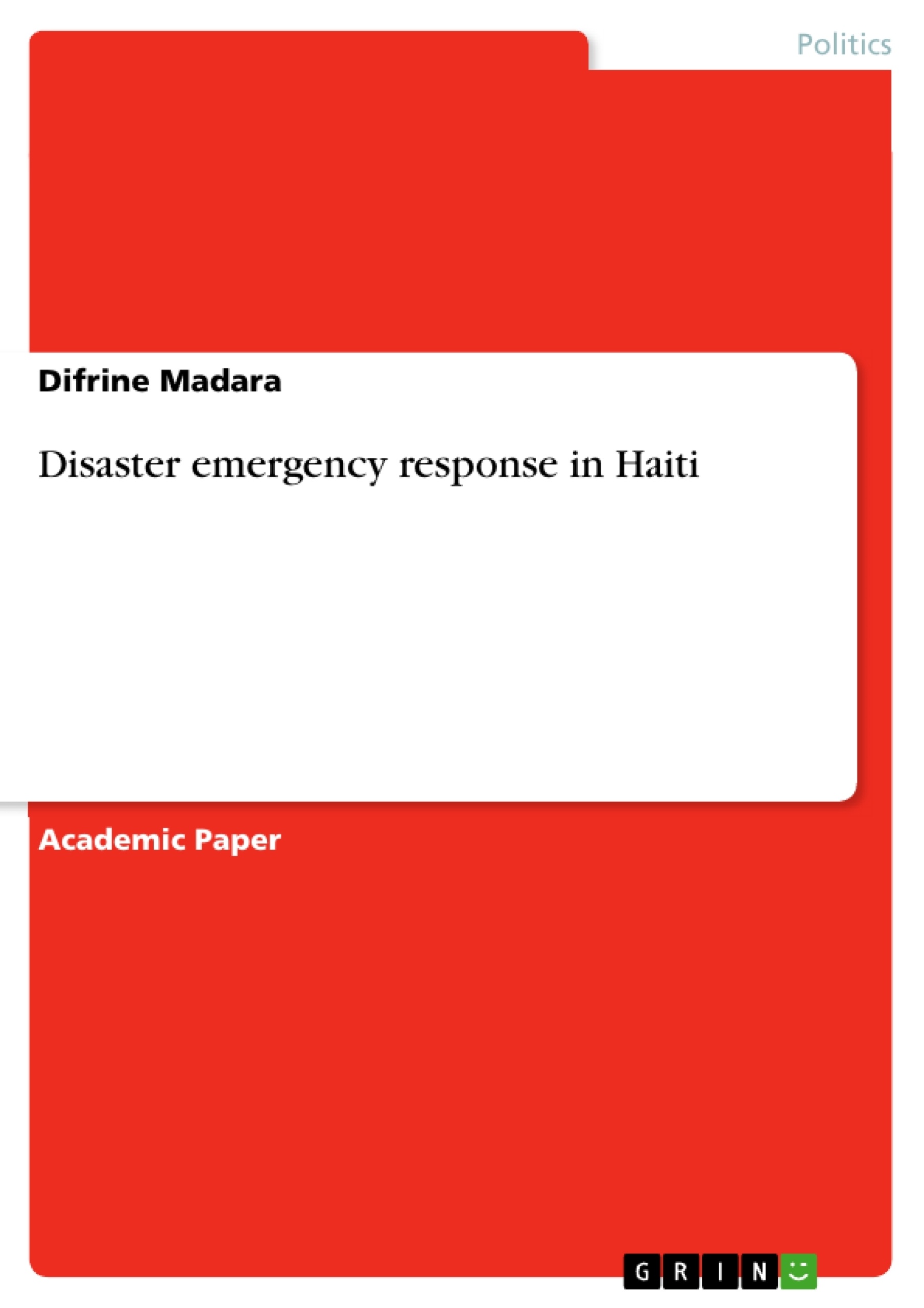The paper is divided into three sections: literature review, findings/discussion and conclusion/implications. Literature review provides a description of an ideal emergency management programme that should be applied during disasters such as Haiti earthquake. Findings/discussion section critically analyses the emergency management and response activities in the 2010 Haiti earthquake. Finally, conclusions/implications provide a summary of the findings and highlight some of the implications of these findings.
The 2010 Haiti earthquake is the most devastating earthquake to take place in the country in the last 200 years. It is estimated that this earthquake affected at least three million people with death toll ranging from 100000 to 160000 people. According to the government of Haiti, more than 250000 residences and 30000 commercial buildings had been destroyed by the quake. The country’s capital, Port-au-Prince was one of the worst affected areas by the earth quake as notable landmark buildings in the city were significantly destroyed. Some of the damaged landmark buildings included the Presidential Palace, National Assembly building, Port-au-Prince Cathedral and the main prison building among others.
Inhaltsverzeichnis (Table of Contents)
- Introduction
- Literature review
- Findings/Discussion
- Conclusion and implications
- References
Zielsetzung und Themenschwerpunkte (Objectives and Key Themes)
This paper examines the emergency management and response activities during the 2010 Haiti earthquake, aiming to establish its implications for policy and practice. The study explores the challenges and shortcomings in disaster preparedness, planning, response, and recovery efforts, considering the devastating impact of the earthquake and the subsequent humanitarian crisis.
- The shortcomings in disaster preparedness and response in Haiti
- The effectiveness of international humanitarian aid in response to the earthquake
- The impact of poor infrastructure and lack of planning on the disaster's consequences
- The importance of effective communication and coordination in disaster management
- The challenges of disaster response in a developing country context
Zusammenfassung der Kapitel (Chapter Summaries)
- Introduction: This section provides an overview of the 2010 Haiti earthquake, outlining its devastating impact, the magnitude of the humanitarian crisis, and the need for a critical evaluation of emergency management and response efforts.
- Literature review: This chapter explores the key elements of an ideal emergency management program, including preparedness, response, mitigation, and recovery. It discusses the challenges faced by Haiti in terms of disaster preparedness and outlines the importance of planning for various risks.
Schlüsselwörter (Keywords)
This paper focuses on the themes of emergency management, disaster response, Haiti earthquake, humanitarian aid, disaster preparedness, communication, coordination, and the challenges of disaster management in a developing country context.
What were the main consequences of the 2010 Haiti earthquake?
The earthquake affected three million people, with a death toll between 100,000 and 160,000, and destroyed over 250,000 residences.
Which landmark buildings were destroyed in Port-au-Prince?
Notable damaged buildings included the Presidential Palace, the National Assembly, the Port-au-Prince Cathedral, and the main prison.
What are the key elements of an ideal emergency management program?
An ideal program includes four phases: preparedness, response, mitigation, and recovery, which were critically analyzed in the Haiti context.
What were the shortcomings in Haiti's disaster response?
The response was hampered by poor infrastructure, lack of prior planning, and challenges in communication and coordination among international aid groups.
What are the implications for future disaster management in developing countries?
The findings highlight the need for better local preparedness and more effective international humanitarian coordination to manage large-scale crises.



